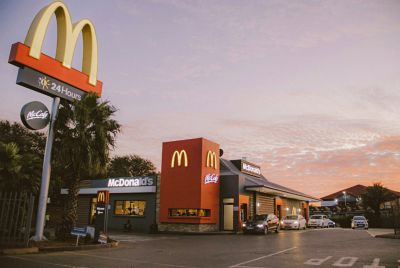Kraft Heinz Stock Dives: Why Are Big Businessmen Like Warren Buffett Disappointed With Merger?
Post-merger, Kraft Heinz faced challenges as health-conscious consumers shifted to fresher alternatives

A decade after its blockbuster union, Kraft Heinz is breaking apart. The company's decision to split into two companies reverses a £29.9 billion ($46 billion) merger, disappointing major investors like Warren Buffett as shares plummet nearly 7%.
Kraft Heinz's Mega Merger Unravels
In 2015, Warren Buffett's Berkshire Hathaway and 3G Capital orchestrated a £29.9 billion ($46 billion) merger to form Kraft Heinz, aiming to boost growth for brands like Heinz ketchup and Oscar Mayer.
On 2 September 2025, Kraft Heinz announced plans to split into two entities: one focused on sauces and condiments, which generated £10 billion ($15.4 billion) in 2024 sales, and another centred on grocery staples like Lunchables. The move follows a 60% share price decline since 2015, according to Reuters, and aims to streamline operations and revive underperforming segments. The condiment unit is expected to deliver stronger margins.
However, Morgan Stanley's Chief China Economist Robin Xing warned on 27 August that while select consumption goods like condiments may benefit from government-backed initiatives in markets like China, food companies like Kraft Heinz may struggle with persistent global economic imbalances, high debt levels, and volatile trade policies, complicating recovery efforts.
This aligns with 2025 trends where companies like Nestlé also face restructuring pressures.
Buffett's Verdict: 'Not A Brilliant Idea'
Warren Buffett, who holds a 27.5% stake in Kraft Heinz, told CNBC on 2 September that the original merger 'wasn't a brilliant idea' but expressed doubts whether the split would resolve issues. Berkshire Hathaway recorded a £2.45 billion ($3.76 billion) write-down on Kraft Heinz in Q2 2025, as shares fell to $26.02, down from $88.41 in 2016.
A post from @CNBC on X on 2 September, captured Buffett's stance: 'Warren Buffett says he is 'disappointed' in Kraft Heinz split; shares fall 3%'. Investors, including BlackRock, share concerns, citing Kraft Heinz's £1.1 billion ($1.7 billion) debt burden from 2024 reports.
Warren Buffett says he is 'disappointed' in Kraft Heinz split; shares fall 3% https://t.co/jK0mMVbyJl
— CNBC (@CNBC) September 2, 2025
This mirrors 2025 trends of skepticism toward food industry restructurings, as firms like General Mills face similar investor pushback.
Consumer Preferences and £12.4 Billion Write-Downs
Kraft Heinz's challenges intensified as health-conscious consumers turned to fresher alternatives, reducing US sales of processed brands like Velveeta, per Reuters. Cost-cutting measures limited brand investment, leading to a £12.4 billion ($19 billion) write-down in 2019 for Kraft and Oscar Mayer.
To refocus, the company sold its Planters nuts unit to Hormel and its cheese division to Lactalis. By 2024, private-label brands accounted for 24% of US grocery sales, pressuring Kraft Heinz's market share, per NielsenIQ data.
Costly Separation and Uncertain Gains
Kraft Heinz's split aims to unlock value, with the condiment-focused company projected to outpace the grocery unit's growth, per Reuters. However, investors remain wary of the estimated £1.3 billion ($2 billion) in separation costs and execution risks, as shares fell 7.2% to £19.47 ($26.02) on 2 September.
Buffett's successor, Greg Abel, echoed concerns, reportedly telling Kraft Heinz that the split may not address core issues like margin pressures. The condiment unit's focus on Heinz ketchup and sauces aims to capitalise on global demand, but rising energy costs and labour shortages could hinder the transition.
Meanwhile, smaller grocery chains may seize the opportunity to challenge the staples unit's market share, potentially delaying its path to profitability. As with other recent food sector restructurings, including Keurig Dr Pepper's planned breakup, investor caution remains high.
© Copyright IBTimes 2025. All rights reserved.





















